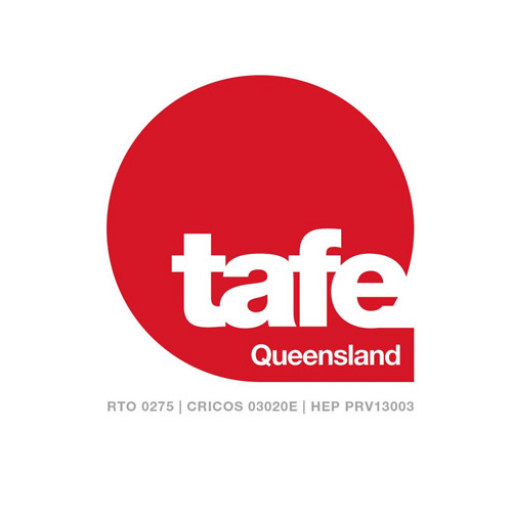Photos of university / #oxford_uni
The Master of Science in Paediatric Infectious Diseases at the University of Oxford is a comprehensive postgraduate programme designed to equip health professionals, researchers, and clinicians with advanced knowledge and skills in the diagnosis, management, and prevention of infectious diseases affecting children. This programme offers a rigorous curriculum that integrates cutting-edge research, clinical practice, and public health strategies, providing learners with a thorough understanding of the complexities associated with infectious agents in paediatric populations. Students will explore topics such as viral, bacterial, parasitic, and fungal infections, as well as emerging pathogens and the impact of antimicrobial resistance. The programme emphasizes a multidisciplinary approach, encouraging collaboration between microbiologists, clinicians, epidemiologists, and public health experts to develop innovative solutions for tackling infectious diseases in children. Delivered through a combination of interactive lectures, seminars, case studies, and independent research projects, the course fosters critical thinking and analytical skills essential for addressing current and future challenges in paediatric infectious disease management. The programme also offers opportunities for practical experience through placements and collaborations with leading healthcare and research institutions. Graduates of this programme will be well-prepared for careers in clinical practice, research, healthcare policy, or academic roles focused on paediatric infectious diseases. The University of Oxford’s global reputation for excellence in medical education and research ensures that students receive a world-class learning experience, supported by expert faculty and extensive resources. Enrolling in this MSc programme signifies a commitment to improving child health worldwide through innovative research, evidence-based practice, and dedicated service.
In order to apply for the MSc, you must have successfully and recently completed the PGDip in Paediatric Infectious Diseases.
The MSc is intended to assess your capacity to formulate research questions, select, design and manage a research project. You will complete a research project of between eight and fourteen weeks and write a dissertation of not more than 15,000 words based upon this. The research can be carried out in Oxford or locally, making the programme suitable for overseas as well as UK residents.
You will receive support and guidance from your dedicated Oxford supervisor during the preparation of your dissertation. If you are completing your research project outside of Oxford you will also be required to find a local supervisor.
While there is no formal teaching programme for the MSc year, you may attend any of the regular series of University lectures and seminars in relevant disciplines, particularly those run by the Department of Paediatrics.
Applicants to the MSc in Paediatric Infectious Diseases are normally expected to be predicted or have achieved a first-class or strong upper second-class undergraduate degree with honours (or equivalent international qualifications), as a minimum, in an appropriate subject. All candidates should have an appropriate medical qualification equivalent to MBBS (Bachelor of Medicine/Bachelor of Surgery).
Strong performance and successful completion of the Postgraduate Diploma in Paediatric Infectious Diseases is an essential requirement for the MSc. Students who have been awarded the Postgraduate Diploma will normally be eligible for admission to the MSc up to two years after completion.
- a statement of purpose, including an outline proposal for a research study
- a CV/résumé
- three academic and/or professional references
- official transcripts detailing your university-level qualifications and marks to date.
ENGLISH LANGUAGE REQUIREMENTS
Higher level
|
Test |
Standard level scores |
Higher level scores |
||
|
IELTS Academic |
7.0 | Minimum 6.5 per component | 7.5 | Minimum 7.0 per component |
|
TOEFL iBT |
100 |
Minimum component scores:
|
110 |
Minimum component scores:
|
| Cambridge Certificate of Proficiency in English (CPE) | 185 |
Minimum 176 per component |
191 |
Minimum 185 per component |
| Cambridge Certificate of Advanced English (CAE) | 185 |
Minimum 176 per component |
191 |
Minimum 185 per component |
Funding for the Paediatric Infectious Diseases programme at the University of Oxford typically encompasses a variety of sources, including government grants, research councils, charitable trusts, university scholarships, and personal funding. Many students secure funding through competitive scholarships offered by the university or external organizations specializing in medical research and postgraduate education. The University of Oxford provides a range of funding options, including the Clarendon Fund, which offers scholarships to exceptional graduate students, and specific scholarships for students enrolled in Medical Sciences divisions. Additionally, students may access funding via the Wellcome Trust, which supports biomedical research and training.
Applicants are encouraged to explore external funding opportunities such as national research councils, health research organizations, and charitable foundations dedicated to child health and infectious diseases. The university also offers information about the possibility of loans and bursaries to support students financially during their studies. Some students may receive funding through departmental or faculty-specific awards, which recognize academic excellence and research potential. It is recommended that prospective students begin exploring funding options early, as application processes and deadlines vary significantly.
Funding arrangements vary depending on the student's nationality, residency status, and the specific nature of their research project. For international students, additional funding sources and sponsorship programs may be available, including partnerships with international health agencies and foundations. The university also provides guidance and support to help students identify suitable funding pathways and prepare compelling applications. It is important for applicants to consult the official University of Oxford website and the department’s financial aid office for the most up-to-date information regarding available funding opportunities, application criteria, and deadlines. Overall, prospective students in the Paediatric Infectious Diseases programme are encouraged to consider a comprehensive funding strategy to successfully finance their studies and research activities at Oxford.
The University of Oxford offers a specialized program in Paediatric Infectious Diseases designed to equip healthcare professionals with comprehensive knowledge and skills to diagnose, manage, and prevent infectious diseases affecting children. The program emphasizes the latest research, clinical practices, and public health strategies in paediatric infectious diseases, aiming to improve patient outcomes and advance global health initiatives. Participants will engage with a multidisciplinary curriculum that covers a wide range of topics, including microbiology, immunology, epidemiology, vaccination strategies, antimicrobial resistance, and emerging infectious diseases specific to paediatric populations. The program employs a blend of theoretical coursework, practical clinical training, and research components, providing a well-rounded educational experience. Students will have opportunities to collaborate with leading experts in the field, participate in clinical case discussions, and undertake research projects that contribute to the advancement of paediatric infectious disease knowledge. The program is suitable for medical professionals, researchers, and public health practitioners seeking to deepen their expertise and leadership capabilities in this specialized area. Upon successful completion, graduates will be well-prepared to work in clinical settings, academic research, policy development, and global health initiatives focused on paediatric infectious diseases. The program benefits from Oxford’s rich academic environment, access to world-class facilities, and partnerships with hospitals and research institutions. It aims to foster a new generation of specialists committed to tackling the challenges of infectious diseases in children worldwide.










